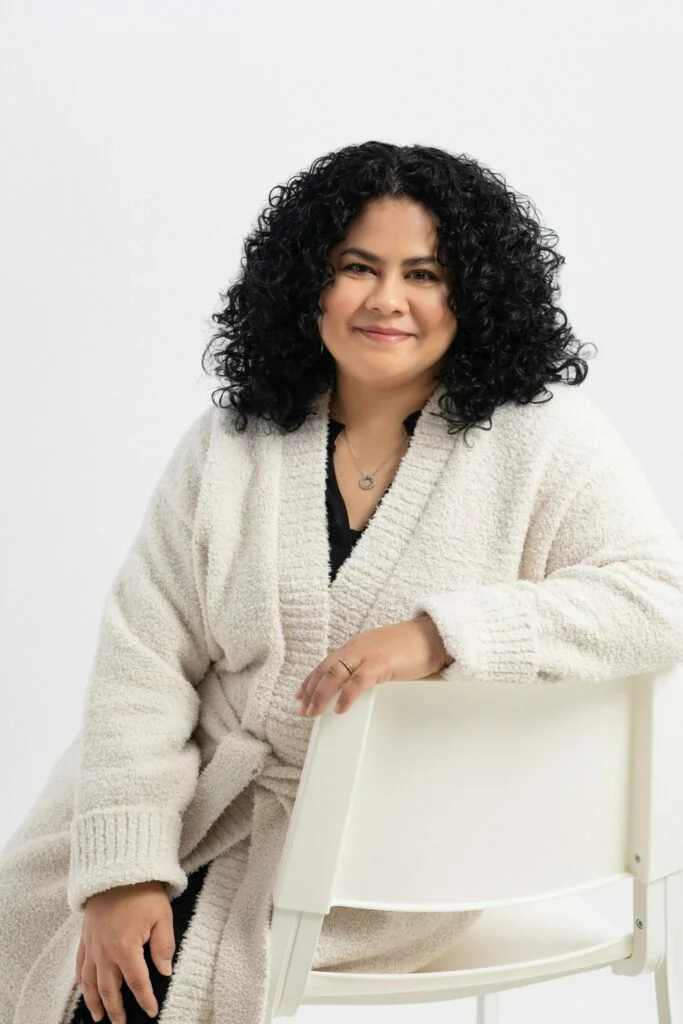African American women are three times more likely to suffer from uterine fibroids than other demographics. Significantly, by the age of 50, 80-90 percent of African American women will have developed fibroids, as opposed to 70 percent of Caucasian women.[iii]
African American women and fibroids
The majority of women develop uterine fibroids during their lifetime. However, African American women not only are at higher risk, their fibroid symptoms are likely to be more severe and are likely to begin earlier. [i][ii] They are more likely to have anemia, suffer heavier menstrual bleeding, feel greater pelvic pain, and have other unpleasant symptoms [iv]. In addition, African American women are more likely to have multiple fibroids, especially as they grow older.[v]
African American women and fibroid risk factors
Unfortunately, there is no guaranteed way to avoid developing uterine fibroids. However, there are certain risk factors that have been identified that tend to affect African-American women more than other women. These risk factors includes:
1. Heredity
A woman whose mother had uterine fibroids is three times more likely to develop them herself.[vi]
2. Diet and Obesity
Obesity (and the diet that leads to being overweight) can be a factor in the growth of uterine fibroids and the resulting presence of fibroid pain. In particular, eating red meat (especially ham and beef) has been linked by some studies to the development of uterine fibroids. Some theorize that this link could be due to the fact that red meat is also linked to rises in estrogen, a hormone that can feed the growth of fibroids. [vii][viii] As a result, you may be able to help prevent uterine fibroids and related symptoms of fibroids by eating a diet rich in fruits, vegetables, and fish, foods scientists call “protective” because of their ability to guard against disease.
3. Age of first period and fibroids
The earlier a woman’s period starts, the more at risk she may be for developing uterine fibroids. African-American women tend to start their periods earlier than others (at an average of 12.3 years instead of 12.5 years). This may be one reason their risk of fibroids is higher than other demographics.[ix]
4. Alcohol consumption
The consumption of alcohol may lead to the growth of uterine fibroids in African American women, based on data gleaned from a Black Women’s Health Study. As a result, reducing alcohol consumption to no more than once a week may help to guard you against the development of fibroids.[x]
5. Hair relaxer usage
Hair relaxers may encourage the growth of uterine fibroids and related symptoms because they contain phthalates. Phthalates have been linked to a greater risk of fibroids due to the fact that they interfere with the hormones in the body.[xi]
6. Lack of Vitamin D
Vitamin D is found in dairy products and is naturally produced by the body in response to sunlight exposure. Proper amounts of Vitamin D can strengthen the immune system and prevent the production of tissues that lead to fibroid development. As a result, obtaining enough Vitamin D through diet and sunshine can help lower your risk of developing fibroids and related fibroid symptoms.[xii]
Viva Eve can treat your uterine fibroids
While you cannot entirely eliminate your risk of developing fibroids, you can lower it by being aware of your risk factors and by doing what you can to control them. And, even if you have or later do develop uterine fibroids, you do not have to live with the fibroid pain forever.
Luckily, there are a number of fibroid procedures that you can undergo to treat this condition. In addition to surgery for uterine fibroids, you may also have access to other, less invasive treatment options, such as uterine fibroid embolization.
Viva Eve specializes in the treatment of both uterine fibroids and adenomyosis. provide high-quality, personalized care for each and every patient we see. We will partner with you to determine the best way to treat your problematic symptoms.



